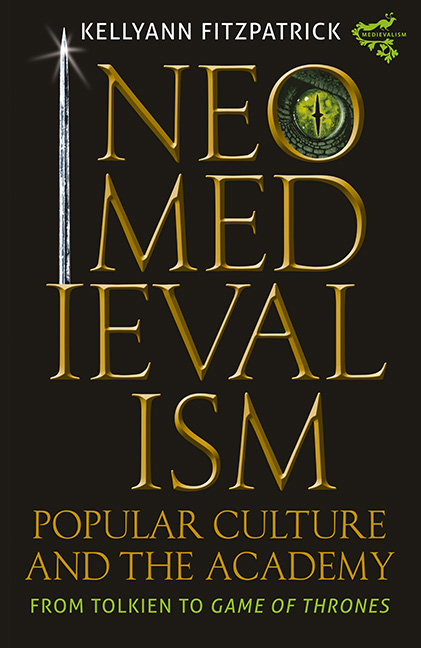4 - Game of Thrones: Neomedievalism and the Myths of Inheritance
Published online by Cambridge University Press: 21 March 2020
Summary
DAENERYS TARGARYEN IS one of the main protagonists in George R. R. Martin's series of neomedieval fantasy novels A Song of Ice and Fire and its HBO television series adaption Game of Thrones. Daenerys appears at the beginning of both series as one of the last known legitimate members of house Targaryen, a noble family from the continent of Essos who had conquered the Seven Kingdoms of the continent of Westeros 300 years earlier. The conquest was purportedly achieved with the aid of dragons, which the Targaryen family could ride into battle and harness as powerful weapons; at the start of the series, however, dragons are extinct, the Targaryens have lost the throne in an uprising over a decade earlier, and Daenerys lives in exile in Essos. Dragons have faded almost into myth until Daenerys, ostensibly through magic tied to fire, blood, and her own inherited abilities, hatches three fossilized dragon eggs and raises the hatchlings into full-size dragons that become key in her own bid to take back the Seven Kingdoms.
The above example illustrates the complex relationship between inheritance and myth in the A Song of Ice and Fire and Game of Thrones series, suggesting a world in which myth may not always stay myth and where blood inheritance is important. It is also a useful starting point for examining how neomedieval fantasy relies on versions of the medieval that it has inherited from sources including medieval history, medieval myth, and later medievalist and neomedieval interpretations. For instance, dragons in A Song of Ice and Fire and Game of Thrones – and, as we saw in the last chapter, Maleficent – are aligned with a series protagonist and are thus a far cry from the dragons-as-antagonist trope that we see in Tolkien's The Hobbit or Disney's Sleeping Beauty, a trope with roots tracing back to medieval myth and literature itself, as we saw in both the Anglo-Saxon poem Beowulf and its interpretations. As Rikke Schubart observes:
Dragons are heavily invested in meaning. In Western mythology, they are monsters to be slain. Ancient Rome used them as a sigil on banners, claiming the strength of dragons at war. In Norse mythology, they were bestial adversaries slain by the hero Beowulf.
- Type
- Chapter
- Information
- Neomedievalism, Popular Culture, and the AcademyFrom Tolkien to Game of Thrones, pp. 103 - 140Publisher: Boydell & BrewerPrint publication year: 2019



